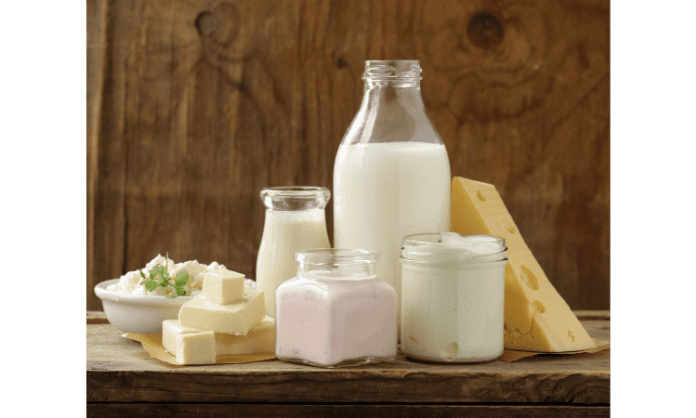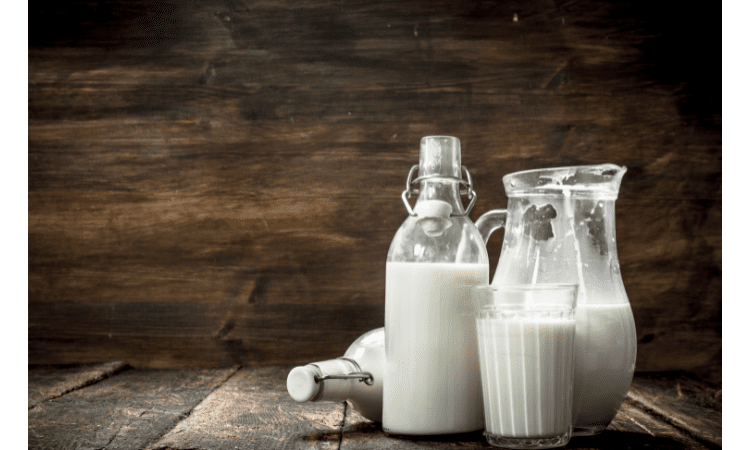
Dairy is a common food product, but it may not be good for your gut health. Milk and other dairy products are associated with some digestive issues such as bloating and diarrhea. Some people also develop lactose intolerance after they reach adulthood, which can be caused by a genetic mutation that makes it difficult to digest lactose — the main sugar found in milk — properly. In this article, we’ll explore how these problems arise and discuss ways you can improve your gut health if you have been experiencing similar issues.
What is gut health?

Gut health is not just about your digestion. It’s about having a healthy digestive system, which is essential for overall health.
The gut is home to trillions of bacteria and other microorganisms, which help with digestion and the absorption of nutrients from food. They also protect the lining of your gut wall from damage caused by toxins or other harmful substances found in food.
If this delicate ecosystem isn’t balanced correctly, it can cause a wide range of gut health issues such as bloating after eating, fatigue after meals and constipation or diarrhoea.
How does dairy affect gut health?

The problem with dairy is that it contains a protein called casein, which can cause health issues like inflammation in the gut. This can lead to gas, bloating and diarrhea. If you are sensitive to dairy products and experience these symptoms after consuming them, you’re likely lactose-intolerant (which means your body does not have enough of an enzyme called lactase).
In case you suspect that you have a sensitivity to milk products, try eliminating them from your diet for two weeks or so before reintroducing them again. If you find that they cause any negative side effects for your gut like those listed above then it’s best to cut out milk altogether.
Another common issue associated with dairy consumption is constipation. It seems counterintuitive but milk contains calcium which creates solid waste in the colon making bowel movements harder while also causing dehydration due to its dehydrating effects on our bodies – both factors contributing towards constipation issues.
Worst dairy products for gut health
Whole cow’s milk

Cow’s milk is typically the first food introduced to infants. It is considered an excellent source of essential nutrients and vitamins that can support the growth and development of babies. However, cow’s milk contains hormones and antibiotics that can affect your gut health if consumed regularly or on a regular basis. Some people who are lactose intolerant may be able to consume small amounts of cow’s milk without experiencing symptoms; however, this depends on individual tolerance levels. Additionally, it is possible for some individuals (especially those with allergies) to experience severe health issues like gastrointestinal symptoms from consuming even small amounts of cow’s milk due to its high lactose content.
Cheese

Cheese is a fermented dairy production that is high in fat, salt and calories. The process of cheese-making involves adding an enzyme called rennet to milk. This causes the milk to separate into curds and whey. The curds are then pressed together to form a solid mass, which over time will become cheese.
Cheese can also be a source of food poisoning, as it often contains listeria bacteria – although this risk is reduced by following proper hygiene practices when handling your raw ingredients (e.g., washing hands thoroughly before starting any preparation).
Cheese may also cause digestive problems if you have lactose intolerance or are sensitive to casein protein found in cow’s milk products like cheese or yogurt. In addition, some types of cheeses contain high levels of calcium phosphate salts (which help preserve flavor), sodium chloride (salt), microbial enzymes or other substances that may not be compatible with certain people’s digestive systems.
Also Read: 6 Best Fermented Foods to Reduce Bloating
Whole Yogurt

Yogurt is a fermented dairy outcome, which means it contains live cultures that are good for the digestive tract. Although yogurt can be an excellent source of calcium, vitamin B12 and other nutrients, there are two major downsides to consuming it: it’s high in lactose and contains lots of sugar.
Lactose is a natural sugar found in milk products that many people struggle to digest properly. If you have trouble digesting lactose—often called lactose intolerance—consuming yogurt will cause bloating and gas because the bacteria in your intestines aren’t able to break down the sugar properly. This will lead to discomfort or even pain if you eat yogurt regularly.
Sugar isn’t any better for you than processed grains are; it’s just another way our gut health suffers from being constantly bombarded with sugary treats like this one.
Conclusion
Milk products can be a great way to get the nutrients you need, but they shouldn’t be your only source of calcium. If you have a history of digestive problems or are looking for more plant-based options, try other sources first. You don’t have to cut out dairy altogether, but it’s important to know what is best for your body and understand why certain foods may not agree with us.











